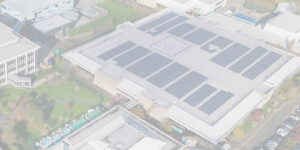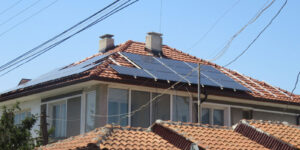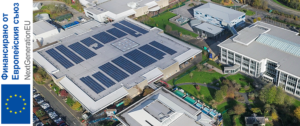In the fourth month, the delay in the process of reviewing and evaluating the 2001 projects presented by households that applied for a grant for the purchase of solar installations for domestic hot water supply and photovoltaic systems for the production and storage of electricity continues. The reason for this is the lack of a sufficient number of project evaluators due to low pay.
In order to complete the procedure by the end of March and sign the subsidies with the applied citizens by June, the Ministry of Energy decides to mobilize a financial resource from its companies in order to find appraisers.
These facts were revealed during the hearing of Energy Minister Rumen Radev before the parliamentary committee on European funds at a meeting on Wednesday.
Acceptance of projects for domestic renewable energy sources continued until November 10, 2023. This was the first stage of the procedure, which is financed under the Recovery and Sustainability Plan with funds in the amount of BGN 80 million. The delivery and installation of solar installations for domestic hot water supply can be financed entirely through this procedure, but the amount cannot exceed BGN 1,960.83. Photovoltaic systems with a power of up to 10 kWp are financed up to 70%, but not more than BGN 15,000, and the rest must be provided by the applicant.
The pay is not great
Now Minister Radev has stated that the data is for 2,001 submitted projects that have not yet been evaluated because the budget provided for the remuneration of the members of the commissions responsible for examining the documents was not sufficient to attract applicants. Additional funds are now being secured, and the minister expects that the committees will be filled and the projects will be approved by the end of March. According to him, with the allocated financial resources and submitted projects, it is likely that all of them will receive the funds.
The energy department's plans include announcing a second procedure at the end of June with twice the budget. It will allow sufficient time for application and evaluation, taking into account the lessons learned from the first procedure to make the process of financing renewable energy sources for private household use more efficient. According to the experts, about 10,000 households will be able to benefit from the full or partial free financing.
The minister also reported on the implementation of the project for financing energy-efficient street lighting of municipalities. In the first call for project approval, contracts for over BGN 53 million were concluded with 64 municipalities. They must be implemented by March 2025. At the moment, a second procedure has been announced, within which new projects for 125 million BGN and 100% financing will be accepted until April 2.
Delay also in the procedures for renewable energy sources and batteries for business-oriented electricity
The procedure for the construction of solar and wind plants with storage systems for the electricity produced by them for business has not yet been announced, although it was supposed to be done last November. For such facilities, more than BGN 663 million have been earmarked for the construction of new 1,425 MW generating capacities, but necessarily with the addition of 350 MW of local facilities for electric energy storage. These funds must be absorbed in four stages.
The first "hand" of the distribution, on which nothing has been announced yet, is for more than 265 million leva, with which at least 570 MW of solar or wind power should be built in combination with 150 MW of batteries for the electricity produced by them.
Three more procedures are planned for an unknown date - for BGN 132,686 million each for the construction of 285 MW of RES capacity with a 75 MW option for electricity storage in each of the unique tenders.
The public discussion of the criteria and rules for applying in the first procedure, announced in October, met with criticism from those involved in the industry. The then-published package of documents made it clear that mostly "mature" projects for the construction of renewable energy sources with batteries, which already have the necessary construction documentation and have signed preliminary contracts for connection to the transmission network with the state-owned "Electricity System Operator", will can benefit from up to 50 percent subsidy.
Now the energy minister has announced that the first recruitment of projects will start in the first half of March, and this will be for small companies that want to create capacities from 200 kilowatts to 2 MW. In the next ones, the maximum power will be increased to allow larger enterprises, but small ones will also be given a chance. For the next two, the results of the first two auctions will be taken into account, according to Radev.
The decarbonisation fund is still in the design phase. Bulgaria has not yet fulfilled the requirement of the European Commission to establish a National Decarbonization Fund, which is a requirement under the Recovery and Resilience Plan, in order to unlock the next payments under it.
So far, only a road map has been prepared for its creation, and now Rumen Radev has stated that it will include the available BGN 10 million from the Energy Efficiency Fund, which will be supplemented. It is being negotiated with the European Investment Bank for its capitalization with borrowed resources, but the amounts and other sources of funds for the fund are not indicated. No free funding is planned from it, and it will act as a financial mechanism, but the goal is not to "eat" from commission work, Radev pointed out, without giving further details.







